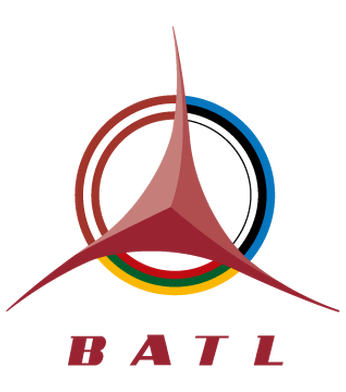It is possible to reduce the freight volume decline in Latvia by rapidly and significantly reducing Latvian Railway’s (LDz) service prices, which is possible by improving the cost effectiveness of LDz operations, says Baltic Express board chairman Māris Bremze.
He stresses: «Latvia cannot hope for transit industry’s problems to resolve on their own and freight volumes to increase under influence of cold winter, for example».
The head of the company reminds that according to data compiled by Transport Ministry, railway freight volumes through Latvia’s ports in 2019 was 19.8% less when compared to 2018. As reported by LDz, last year’s volume of railway freights was the lowest in the past 17 years. On top of that, the company has announced plans to lay off 1 500 employees this year.
Māris Bremze notes this is largely the fault of the previous LDz management’s unreasonable cost increase.
«This includes the increase railway service tariffs and refusal to provide other cargo carriers equal rights. Instead the company has focused on lobbying the interests of its subsidiaries LDz Cargo and Baltic Transit Service.»
It should be said that Baltic Association – Transport and Logistics (BATL) has stressed multiple times that it is necessary to think about reducing the fees for use of state railway infrastructure across the entire network, as well as consider investments in making railway line use more efficient and reduce unrelated costs and state co-financing of railway networks.
«In spite of different distances of Latvian ports, the costs of Latvia’s transit corridor, when calculated per ton, should be equal. Only then will it be possible to reach Transport Minister Tālis Linkaits’ objective to adapt to the transit and transport network to keep Latvia’s transit corridor attractive for cargo senders and recipients. But this goal is reachable only if the Transport Ministry and transit market participants work together and no one is provided with any preferential conditions, which is something we can see in relation to LDz Cargo and BTS,» stresses BATL board member Ivars Landmanis.
Meanwhile Māris Bremze says the biggest problem for railway freight transport segment is the fact that Latvia’s market remains unopened for free competition. «In the European Union the freight transport market has been open since 2007. This means Latvia, as an EU member state, should have opened up its market 12 years ago. But in reality we are completely dependent on LDz and its subsidiary LDz Cargo in matters of service costs and accessibility. All railway segments close to the border remain monopolized, transports from the port to the land are performed only by LDz Cargo and only LDZ Cargo operates with the price mechanisms. This means LDz Cargo board needs to take a great deal of responsibility for the volume of attracted freights.»
Māris Bremze notes: «For all these years LDz has sustained itself off the business model inherited from the Soviet Union, carrying freights from the east to our ports, but now that the flow of freights has ceased, it turns out the established railway system is unsustainable. The fee for railway services is already unreasonable, and we are informed that the infrastructure fee will only increase in February. It was calculated that the fee for carrying freights using the railway from Latvia’s border all the way to the nearest docked ship accounts for 80% or more from all costs.»
«While nearly across the entire Europe the fee for one railway km is EUR 3, EUR 5 in Poland and EUR 1.5 in Germany (thanks to state support), in Latvia it costs EUR 11!»
According to Bremze, the situation would improve if Latvia finally did its long overdue homework – open its railway freight market for free competition, as well as create an attractive and comprehensive price offer. It is also necessary to demonstrate political will and separate certain LDz subsidiaries, leaving LDz with only infrastructure management functions.
«This way infrastructure manager will not have the maternal desire to support its subsidiaries and instead focus on maintaining railway infrastructure, traffic and equal rules for all carriers,» says Māris Bremze.
BATL, on the other hand, notes that a situation when because of LDz’s internal management operations and unwillingness to listen to other industry participants, costs that have increased over the years are covered at the expense of private companies and their customers and not at the expense of the railway concern is unacceptable. This results of Latvia suffering losses in international competition in transit sector.
«Businessmen working in the transit industry hope for active involvement from Transport Ministry, because transit accounts for 2.5% of GDP and is one of the most important national economy industries in the country, so it is vital to maintain its potential in today’s hard times,» BATL notes.





